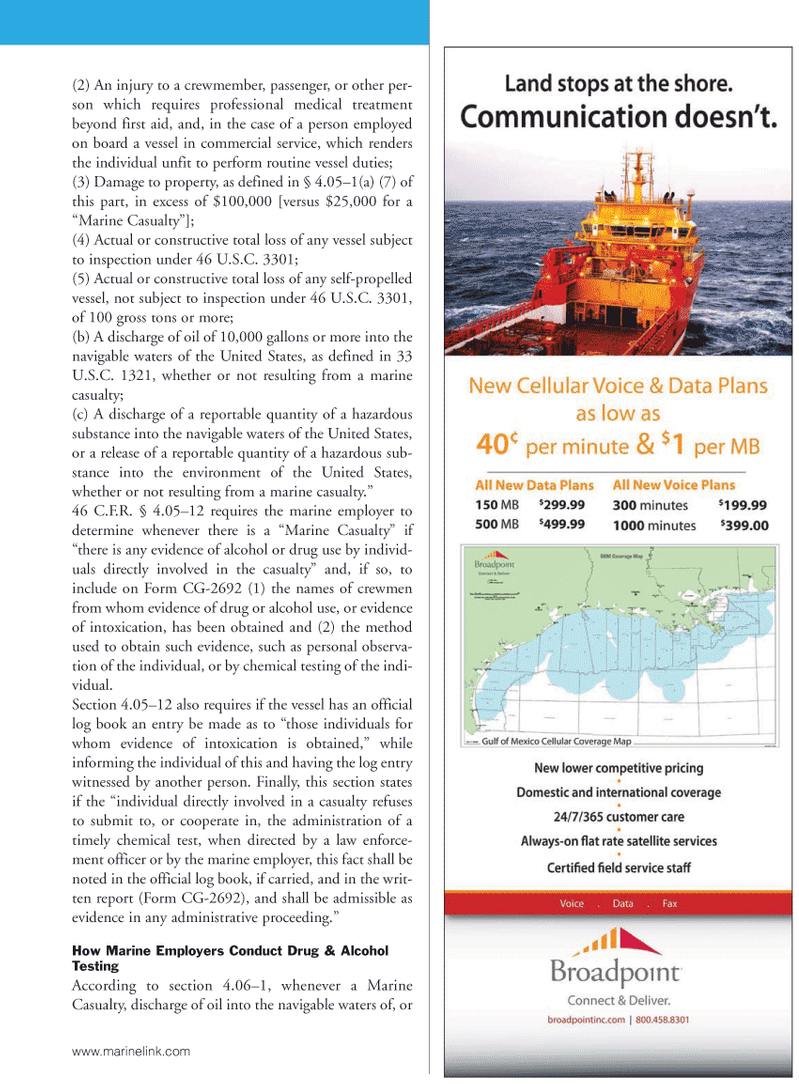
Page 15: of Marine News Magazine (February 2011)
Inland Waterways
Read this page in Pdf, Flash or Html5 edition of February 2011 Marine News Magazine
www.marinelink.com (2) An injury to a crewmember, passenger, or other per- son which requires professional medical treatment beyond first aid, and, in the case of a person employed on board a vessel in commercial service, which renders the individual unfit to perform routine vessel duties; (3) Damage to property, as defined in § 4.05–1(a) (7) of this part, in excess of $100,000 [versus $25,000 for a “Marine Casualty”]; (4) Actual or constructive total loss of any vessel subject to inspection under 46 U.S.C. 3301; (5) Actual or constructive total loss of any self-propelled vessel, not subject to inspection under 46 U.S.C. 3301, of 100 gross tons or more; (b) A discharge of oil of 10,000 gallons or more into the navigable waters of the United States, as defined in 33
U.S.C. 1321, whether or not resulting from a marine casualty; (c) A discharge of a reportable quantity of a hazardous substance into the navigable waters of the United States, or a release of a reportable quantity of a hazardous sub- stance into the environment of the United States, whether or not resulting from a marine casualty.” 46 C.F.R. § 4.05–12 requires the marine employer to determine whenever there is a “Marine Casualty” if “there is any evidence of alcohol or drug use by individ- uals directly involved in the casualty” and, if so, to include on Form CG-2692 (1) the names of crewmen from whom evidence of drug or alcohol use, or evidence of intoxication, has been obtained and (2) the method used to obtain such evidence, such as personal observa- tion of the individual, or by chemical testing of the indi- vidual.
Section 4.05–12 also requires if the vessel has an official log book an entry be made as to “those individuals for whom evidence of intoxication is obtained,” while informing the individual of this and having the log entry witnessed by another person. Finally, this section states if the “individual directly involved in a casualty refuses to submit to, or cooperate in, the administration of a timely chemical test, when directed by a law enforce- ment officer or by the marine employer, this fact shall be noted in the official log book, if carried, and in the writ- ten report (Form CG-2692), and shall be admissible as evidence in any administrative proceeding.”
How Marine Employers Conduct Drug & Alcohol
Testing
According to section 4.06–1, whenever a Marine
Casualty, discharge of oil into the navigable waters of, or

 14
14

 16
16
